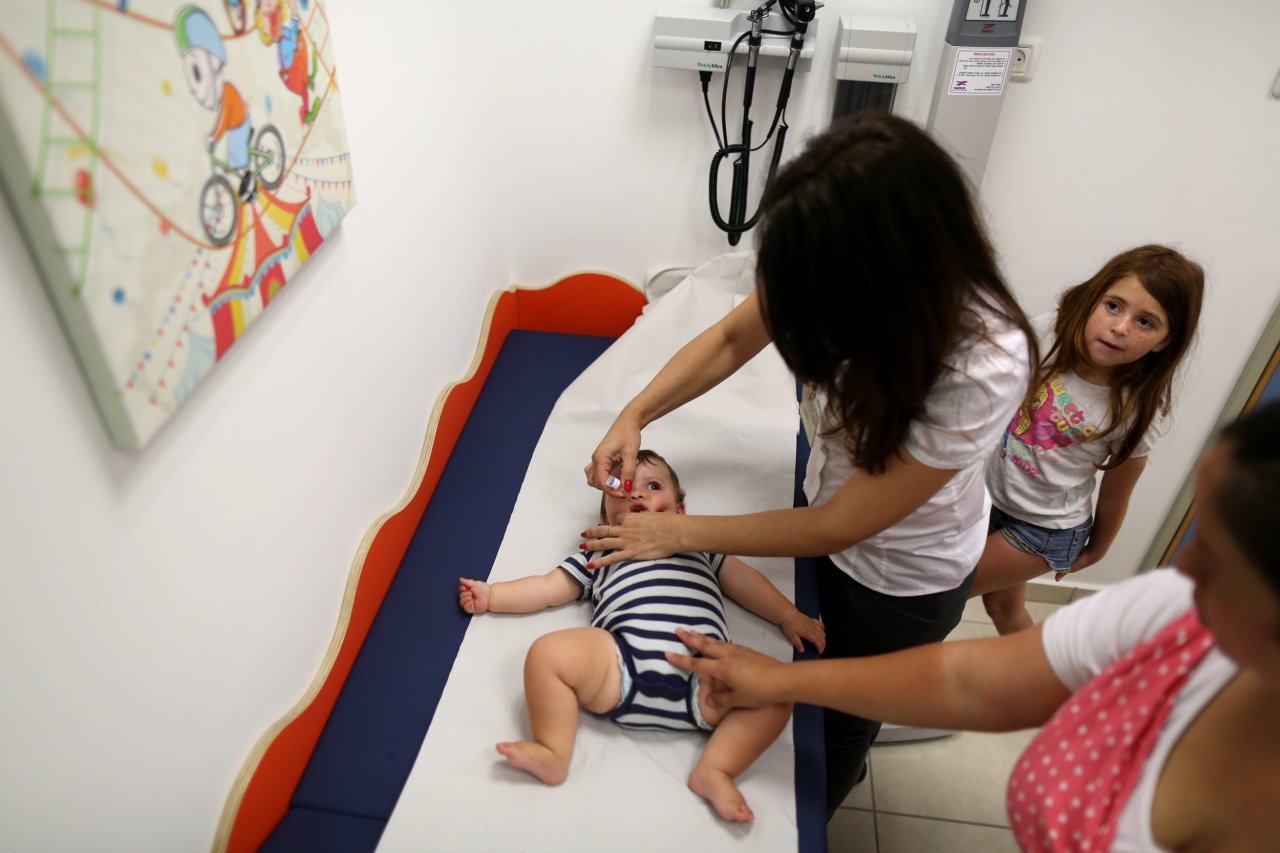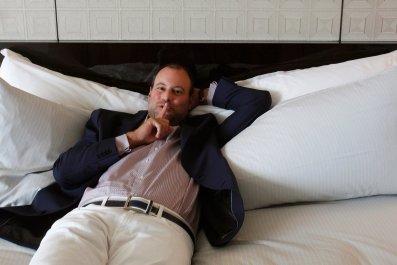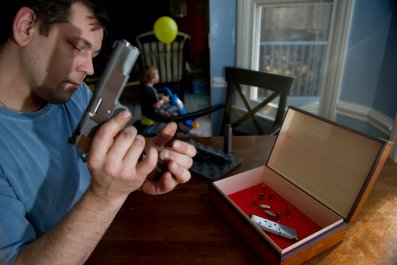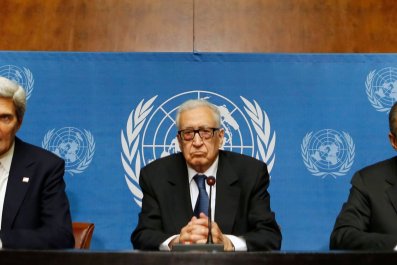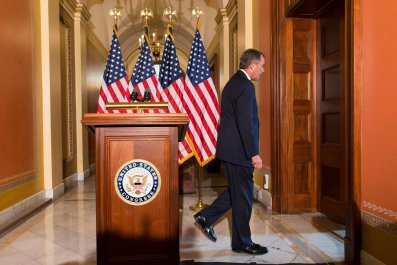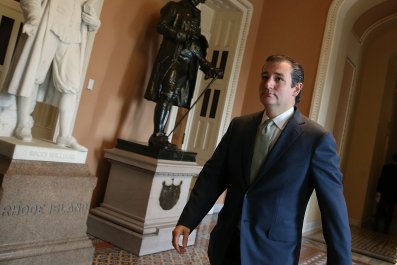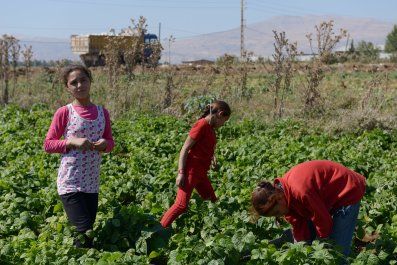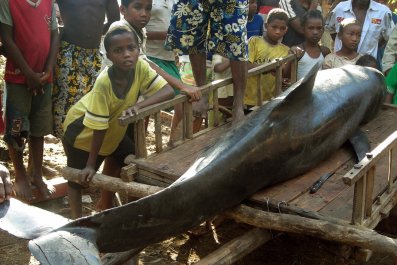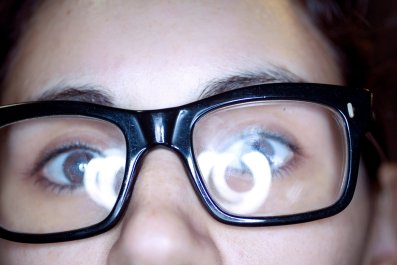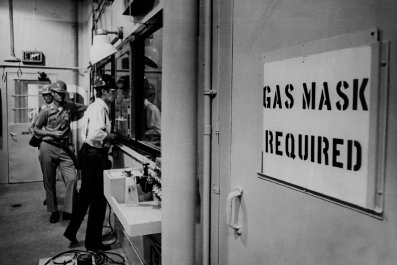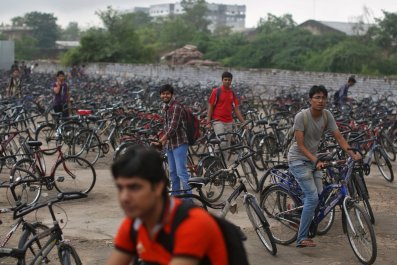Epidemiologists did their best to warn everyone, but too many people had their own ideas. Now it's happening: The highly contagious and potentially fatal disease pertussis, also known as whooping cough – practically eradicated in the United States until just a few years ago – is making a virulent comeback. Medical researchers know why it's spreading, and they know how to stop it. The trouble is that so many people refuse to listen to them.
A newly published study in the official journal Pediatrics lays out the facts behind the resurgence. Its root cause is a persistent epidemic of misinformation about vaccines, which is leading parents to decline to have their children immunized. The study focuses on a dramatic 2010 outbreak in California, where the number of reported whooping cough cases soared to 9,120, including 10 infant deaths. It was the state's worst eruption of the disease in more than 60 years, and fully nine times the total recorded across the entire United States in 1976, when a concerted immunization program had all but wiped out the pathogen.
Public-health officials at first blamed a new, weakened strain of the pertussis vaccine. But the Pediatrics study's lead author, Jessica Atwell, only a first-year graduate student back then, began to suspect a different culprit when she attended a talk on the resurgence of preventable diseases by Daniel Salmon, an associate professor at Johns Hopkins Bloomberg School of Public Health, He spoke of an earlier whooping cough outbreak in Michigan, where the illness was at its worst in geographic clusters of parents who had chosen not to have their children vaccinated.
Atwell approached Salmon after his talk, and they decided to investigate the California outbreak using the state's public-health records. Like every other state, California requires proof of immunization against pertussis and other diseases before a student can enroll in a public school. But like almost every other state (Mississippi is the sole exception), it allows some parents to opt out of receiving the shots. And California makes it particularly easy, Atwell says – parents have only to sign a form stating that vaccines go against their religious or philosophical beliefs.
Working with a team that included researchers from Emory University in Atlanta the California Department of Public Health, Atwell and Salmon found that the ratio of school kids without immunizations had more than tripled in the preceding decade years from 0.77 percent to 2.33 percent, with the figure at some schools as high as 84 percent. On top of that, the researchers discovered that census areas with high vaccine-exemption rates were statistically more likely to coincide with clusters of whooping cough cases.
Failure to immunize against pertussis carries particularly high risks. Along with a few other illnesses – measles among them – whooping cough has one of the largest "basic reproductive rates" that epidemiologists have quantified. The number is a measure of how quickly an infectious disease spreads. For example, an influenza patient is likely to spread the bug to just one or two other people. For someone with whooping cough, on the other hand, the probable number of secondary cases is between 15 and 17.
Given such a reproductive rate, the disease doesn't need many infected children in order to spread through an area. According to Atwell's study, 95 percent or more of the population has to be immune if a community hopes to avoid an outbreak. And yet parents keep declining to protect their children. A small but vocal number of parents and other advocates (including, famously, celebrity TV host Jenny McCarthy) have argued that vaccines carry terrible health risks. In particular they argue that the mumps, measles, and rubella vaccine (MMR, in medical shorthand) can cause autism, even though stacks of scientific studies roundly dispel this belief as myth. It persists nevertheless, as shown by the lowered vaccination rates that have resulted inclustered measles outbreaks as recently as this year.
Worse yet, fear of the MMR vaccine deters parents from letting their kids get shots against anything else, whooping cough included. Public health officials do their best to walk the narrow line between protecting the community from contagious illnesses and respecting individuals' right to say no to vaccination. "I firmly believe that all states should have that option," says Atwell, "but I also think that people should understand the broader consequences of using exemptions."
That's the challenge: Medical science has made such strides that most Americans have little or no direct experience of childhood epidemics. "My mother's generation grew up with measles and mumps and polio," says Atwell "When she had kids, she didn't hesitate to protect us against those things. But now women my age, who were born in the 1980s, the worst vaccine-preventable disease we had as kids was chicken pox. I think we've lost some appreciation for how serious these diseases are and how fragile our hold on them is." The hope is that people won't have to learn those lessons the hard way.



